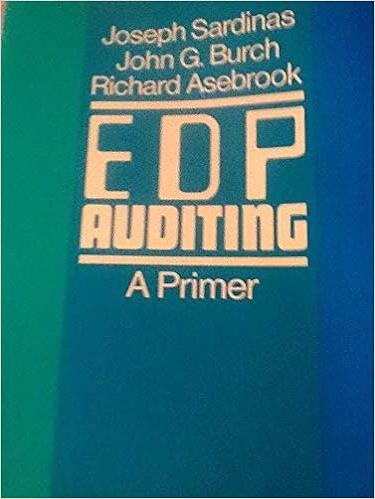Question
What is the closed transaction doctrine, and why does it exist for purposes of recognizing a loss realized on holding property? A.The closed transaction doctrine
What is the closed transaction doctrine, and why does it exist for purposes of recognizing a loss realized on holding property?
A.The closed transaction doctrine states that a realized loss must be evidenced by a completed transaction or identifiable event. This doctrine exists to prevent taxpayers from recognizing a loss as a result of fluctuating prices prior to the disposition of the property.
B.The closed transaction doctrine states that a realized loss must be evidenced by a notarized statement that the transaction is to be completed within 12 months of the close of the tax year. This doctrine exists to give taxpayers a window of time to complete pending transactions.
C.The closed transaction doctrine recognizes that a property could decline in value and be worthless in the future. This doctrine exists to allow taxpayers to recognize a loss as a result of fluctuating prices prior to the disposition of the property.
D.The closed transaction doctrine states that a realized loss for the sale or exchange of commercial real estate property must be completed within 30 days of the close of the tax year. This doctrine exists to give taxpayers a window of time to complete pending real estate transactions.
Step by Step Solution
There are 3 Steps involved in it
Step: 1

Get Instant Access to Expert-Tailored Solutions
See step-by-step solutions with expert insights and AI powered tools for academic success
Step: 2

Step: 3

Ace Your Homework with AI
Get the answers you need in no time with our AI-driven, step-by-step assistance
Get Started


